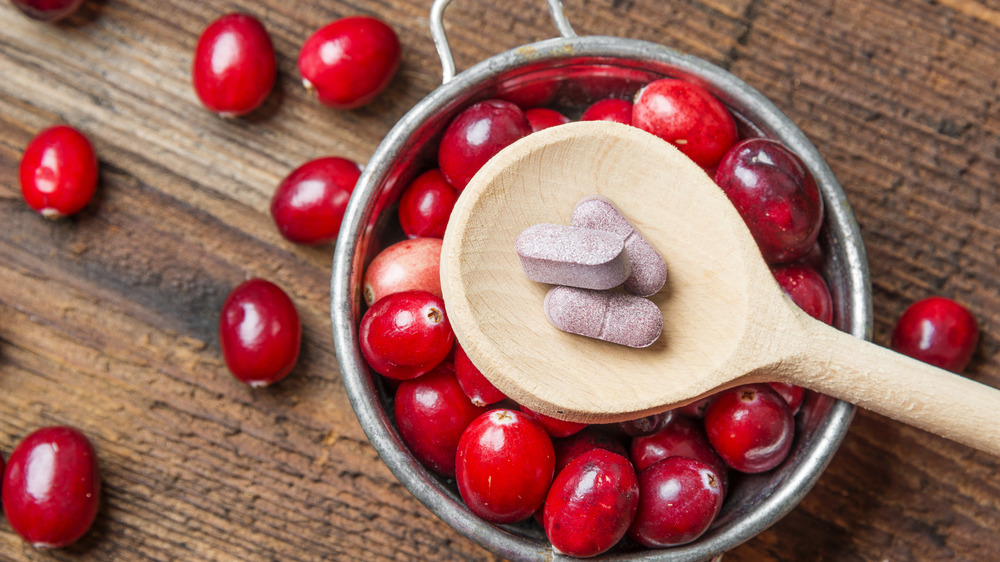Can Cranberries Help Prevent UTIs?
It is estimated that 50 to 60 percent of women worldwide will experience a lower urinary tract infection (UTI) at some point in their life (via The Journal of Nutrition). UTIs are the most common urologic condition in the United States and are responsible for nearly $2.6 billion in healthcare costs per year. So what exactly is this pesky infection and what role can cranberries play in its management?
UTIs develop when microorganisms, most commonly the bacteria Escherichia coli (E.Coli), are introduced into the urinary tract, adhere to tissue, and then rapidly multiply (via Clinics). The subsequent inflammation and infection within the tract can lead to the development of very uncomfortable symptoms such as painful and increased frequency of urination, urgency, blood in the urine, foul odor, and side or flank pain (via Cleveland Clinic). If the infection spreads further up the urinary tract to the kidneys, known as pyelonephritis, the condition becomes much more serious and urgent medical attention is required. In the case of pyelonephritis, people can experience more severe symptoms of increased pain, fever, vomiting, and even altered mental status.
Lower UTIs typically resolve within one to two weeks when treated with a course of oral antibiotics and encouraged increased fluid intake. However, approximately 20 to 30 percent of women can experience a recurrence of infection. That's where cranberry juice and supplements have been suggested as a preventative tool.
What the data tells us about cranberries and UTI prevention
A 2017 systematic review analyzed seven randomized control trials (RCTs) which investigated whether cranberries were effective in preventing recurrent UTIs in healthy women. Some RCTs utilized cranberry juice, while others used cranberry tablets or capsules. The review ultimately concluded that the evidence to date suggests cranberries are indeed effective in preventing the recurrence of UTIs, but also emphasized the need for additional, larger-scale studies to confirm their findings. The same is needed to further determine whether oral supplements or cranberry juice is more effective.
It is believed that the key to cranberries' ability to help prevent UTIs comes from the fact that they contain phytonutrients known as condensed tannins (via Healthline). Tannins are known to help prevent attachment and adherence of E.coli bacteria to the lining and tissues of the urinary tract, and cranberries contain some of the highest amounts of tannins found naturally in fruit.
While most evidence suggests cranberries may indeed be preventative for recurrent UTIs, a few studies have found no significant benefit, further emphasizing the need for additional, more robust research. In the meantime, cranberries are also good sources of vitamin C and E, as well as antioxidants, and may provide additional heart and gastrointestinal health benefits. If you choose to start taking a cranberry supplement, as always, make sure to consult with your healthcare provider.


